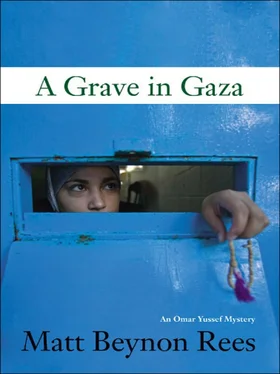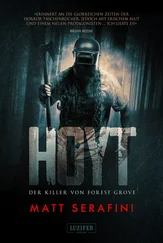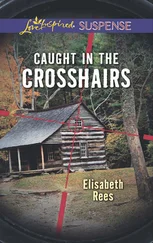Matt Rees - A grave in Gaza
Здесь есть возможность читать онлайн «Matt Rees - A grave in Gaza» весь текст электронной книги совершенно бесплатно (целиком полную версию без сокращений). В некоторых случаях можно слушать аудио, скачать через торрент в формате fb2 и присутствует краткое содержание. Жанр: Криминальный детектив, на английском языке. Описание произведения, (предисловие) а так же отзывы посетителей доступны на портале библиотеки ЛибКат.
- Название:A grave in Gaza
- Автор:
- Жанр:
- Год:неизвестен
- ISBN:нет данных
- Рейтинг книги:5 / 5. Голосов: 1
-
Избранное:Добавить в избранное
- Отзывы:
-
Ваша оценка:
- 100
- 1
- 2
- 3
- 4
- 5
A grave in Gaza: краткое содержание, описание и аннотация
Предлагаем к чтению аннотацию, описание, краткое содержание или предисловие (зависит от того, что написал сам автор книги «A grave in Gaza»). Если вы не нашли необходимую информацию о книге — напишите в комментариях, мы постараемся отыскать её.
A grave in Gaza — читать онлайн бесплатно полную книгу (весь текст) целиком
Ниже представлен текст книги, разбитый по страницам. Система сохранения места последней прочитанной страницы, позволяет с удобством читать онлайн бесплатно книгу «A grave in Gaza», без необходимости каждый раз заново искать на чём Вы остановились. Поставьте закладку, и сможете в любой момент перейти на страницу, на которой закончили чтение.
Интервал:
Закладка:
“So someone sold these degrees by mistake? It wasn’t really corruption; it was just some kind of slip?” Omar Yussef said.
“I don’t know if degrees were sold. Anyway, whatever this building may be, it’s not the university. You have the wrong address.”
“It would reflect on your own force, though,” Wallender said, “if your agents were buying degrees so they could be promoted and get a bigger salary out of the government.”
“We aren’t short of money. We could pay higher salaries if we wanted. We have two thousand officers. That’s not a big number. It’s not such a costly thing to increase their pay.” Al-Fara slurped his tea and wiped his mustache with a tissue. “There are foreign influences in Gaza. Spies. This is what we’re investigating.”
Al-Fara stared past his guests, along the table to the television at the end of the room. The news station repeated footage of the mass military funeral of the previous day. With the vaguest of sneers, al-Fara watched the crowd jostle the coffin, draped in the Palestinian flag. He extended his pinkie and picked his teeth with the long, yellow fingernail.
“You’re investigating Masharawi for spying on behalf of the CIA?” Omar Yussef said.
“Perhaps.” Al-Fara didn’t look away from the television.
Omar Yussef switched to Arabic. “You also work with the CIA.”
Al-Fara didn’t move, but a long breath like the sound of a distant jet engine sighed out of his throat.
“What would he be spying on, precisely?” Omar Yussef asked. “The nuclear reactor in Gaza? The tactics of the Palestinian soccer team?”
Al-Fara turned his dark eyes slowly toward Omar Yussef. “You think there are no spies in Gaza?”
“I think it’s easy to call someone a spy and make it stick these days.”
“That’s because there are so many of them.”
“I admire your logic,” Omar Yussef said. He paused. “Mister Wallender and Mister Cree would like to visit Masharawi on behalf of the UN, which employs him on days when he’s not at the university.”
Al-Fara turned fully away from the television to Omar Yussef. His eyes tightened. When they arrested Masharawi, this guy didn’t know the teacher was a UN worker as well, Omar Yussef thought. Professor Maki didn’t tell him. Now he’s angry, because the foreigners are going to blame him. A domestic matter might suddenly turn into an international incident. He doesn’t want that kind of scrutiny.
“It’s not possible for you to see him,” al-Fara said.
“The United Nations must insist that its representatives be allowed to see Masharawi,” Omar Yussef said, raising his voice, “to examine his condition and to discuss his case.” He saw Wallender twitch his head toward him, wanting to know what these Arabic words meant, sensing the tension that glowed around al-Fara like a flame, but not wanting to interrupt.
Al-Fara watched the stub of his cigarette burn. “As a humanitarian gesture, I will allow his wife to visit him. But I cannot allow anyone else to see him until the investigation is complete.”
“When can she see him?” Omar Yussef asked.
Al-Fara dropped the cigarette into a glass ashtray and held his hands wide. “Today, of course.”
“Thank you. Will it be possible for us to discuss the case with you in more detail, once she has reported to us on his condition?”
“I won’t be here.”
“Perhaps this evening, then?”
“It’s not possible. I won’t be in Gaza.”
“Where will you be?”
Al-Fara smiled and looked hard at Omar Yussef. “I’ll be in Tel Aviv. I have a meeting with the American ambassador.”
“The meeting will keep you away from Gaza all afternoon and evening?”
“All night. It’s not just a meeting to say hello. I’m visiting the American ambassador, not my auntie. I’ll be discussing serious issues and the talks are sure to go on into the night.” He switched back to English and looked at Cree. “I’m sure the United Nations is aware of these security talks.”
Omar Yussef glanced at Cree. Does he know about them? he wondered.
“But, of course, those contacts are at the top level, far above your heads.” Al-Fara looked from Omar Yussef to Wallender.
In the courtyard, Omar Yussef stopped to blow the dirt from his nose. Above the line of Audis there were small, barred windows in the wall. Cells. He felt a flash of abandonment, cold across his chest, and he knew it for the way Masharawi must have been feeling, confined up there. He thought of calling the prisoner’s name, but Wallender and Cree already were on their way to the gate, happy they had arranged a meeting for Salwa Masharawi with her husband.
Omar Yussef looked back at the windows. Behind the bars, there appeared to be no glass in the frames. The dirt that hung in the air would fill those rooms as well.
Chapter 7
Vivid orange spots vibrated behind Omar Yussef’s eyelids, decaying to red and purple. His head ached. His breathing was shallow and the air was hot, thick and sweaty.
“This is a bastard place to make us wait,” Cree said.
Omar Yussef opened his eyes and the bright sun needled deep into his brain. Cree sat across the bare room on a plastic garden chair, his tall body folded awkwardly. He pinched the shoulders of his shirt and lifted them away from his sweating skin. Wallender’s eyes were shut. He rested the backs of his hands on his knees and breathed slowly and deeply through his small nose.
The windows had been painted shut and there were no shades. Cree had propped open the door with a chair to circulate some air, but the corridor smelled powerfully of feces from a blocked toilet. This was clearly a room where people were put to make time drag excruciatingly, to render every breath a crushing effort, rewarded only with foul air virtually devoid of oxygen.
It was nearly two o’clock. They had brought Salwa Masharawi to the Preventive Security headquarters at noon. The burly guard with whom Omar Yussef had first clashed at the gate led them to this room on the ground floor, while another took Salwa across the courtyard toward the cells. The guard locked the door at the end of the corridor to keep them from wandering the halls. All the open doors on the hallway led to rooms as bare and stifling as this one.
Omar Yussef’s chest was tight. The dead air in the room was familiar to him, though it was a memory he had tried to bury. It rushed through his mind now in a cascade of heavy turning locks, filthy food and air that was hot and still. He felt an urge to confess to the two foreigners, but he wondered what they would think of him. You know, a long time ago I was in jail, too, he would say. It was an injustice, a matter of political revenge. They wouldn’t believe him. They would assume he had been guilty, because, after all, they came from countries where there was law and justice. Perhaps shame keeps me silent, he thought. Not shame that I was jailed, but shame that I was bullied out of politics by the threat of more time in prison. Shame that I chose to live a quiet, easy life for so long, while there was death and suffering all around me. He stared at the sun and tensed his jaw to be sure he wouldn’t speak.
A key turned in the lock at the end of the corridor and the door opened. They heard heavy feet shuffle into the hall, then stop.
“If you please,” the guard called. His voice echoed along the corridor.
Wallender opened his eyes and rolled his neck. “A nice rest,” he said, with a gentle sigh of contentment.
Cree stared at the Swede with his mouth wide open.
Omar Yussef followed the foreigners along the dark corridor. He felt stiff, but he tried to move as fast as he could to keep up. The guard watched him all the way and he couldn’t help but fear being left behind, closed into this place without the protection of the UN, imprisoned with the stink of filth and the maddening heat and the hopeless vulnerability.
Читать дальшеИнтервал:
Закладка:
Похожие книги на «A grave in Gaza»
Представляем Вашему вниманию похожие книги на «A grave in Gaza» списком для выбора. Мы отобрали схожую по названию и смыслу литературу в надежде предоставить читателям больше вариантов отыскать новые, интересные, ещё непрочитанные произведения.
Обсуждение, отзывы о книге «A grave in Gaza» и просто собственные мнения читателей. Оставьте ваши комментарии, напишите, что Вы думаете о произведении, его смысле или главных героях. Укажите что конкретно понравилось, а что нет, и почему Вы так считаете.












